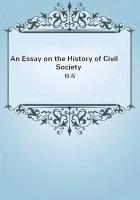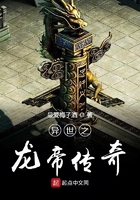At this time, Metellus, the high priest, died, and Catulus and Isauricus, persons of the highest reputation, and who had great influence in the senate, were competitors for the office, yet Caesar would not give way to them, but presented himself to the people as a candidate against them. The several parties seeming very equal, Catulus, who, because he had the most honour to lose, was the most apprehensive of the event, sent to Caesar to buy him off, with offers of a great sum of money. But his answer was, that he was ready to borrow a larger sum than that to carry on the contest. Upon the day of election, as his mother conducted him out of doors with tears after embracing her, "My mother," he said, "to-day you will see me either high priest or an exile." When the votes were taken, after a great struggle, he carried it, and excited among the senate and nobility great alarm lest he might now urge on the people to every kind of insolence. And Piso and Catulus found fault with Cicero for having let Caesar escape, when in the conspiracy of Catiline he had given the government such advantage against him. For Catiline, who had designed not only to change the present state of affairs, but to subvert the whole empire and confound all, had himself taken to flight, while the evidence was yet incomplete against him, before his ultimate purposes had been properly discovered. But he had left Lentulus and Cethegus in the city to supply his place in the conspiracy, and whether they received any secret encouragement and assistance from Caesar is uncertain; all that is certain is, that they were fully convicted in the senate, and when Cicero, the consul, asked the several opinions of the senators, how they would have them punished, all who spoke before Caesar sentenced them to death; but Caesar stood up and made a set speech, in which he told them that he thought it without precedent and not just to take away the lives of persons of their birth and distinction before they were fairly tried, unless there was an absolute necessity for it; but that if they were kept confined in any towns of Italy Cicero himself should choose till Catiline was defeated, then the senate might in peace and at their leisure determine what was best to be done.
This sentence of his carried so much appearance of humanity, and he gave it such advantage by the eloquence with which he urged it, that not only those who spoke after him closed with it, but even they who had before given a contrary opinion now came over to his, till it came about to Catulus's and Cato's turn to speak. They warmly opposed it, and Cato intimated in his speech the suspicion of Caesar himself, and pressed the matter so strongly that the criminals were given up to suffer execution. As Caesar was going out of the senate, many of the young men who at that time acted as guards to Cicero ran in with their naked swords to assault him. But Curio, it is said, threw his gown over him, and conveyed him away, and Cicero himself, when the young men looked up to see his wishes, gave a sign not to kill him, either for fear of the people or because he thought the murder unjust and illegal. If this be true, I wonder how Cicero came to omit all mention of it in his book about his consulship. He was blamed, however, afterwards, for not having made use of so fortunate an opportunity against Caesar, as if he had let it escape him out of fear of the populace, who, indeed, showed remarkable solicitude about Caesar, and some time after, when he went into the senate to clear himself of the suspicions he lay under, and found great clamours raised against him, upon the senate in consequence sitting longer than ordinary, they went up to the house in a tumult, and beset it, demanding Caesar, and requiring them to dismiss him.
Upon this, Cato, much fearing some movement among the poor citizens, who were always the first to kindle the flame among the people, and placed all their hopes in Caesar, persuaded the senate to give them a monthly allowance of corn, an expedient which put the commonwealth to the extraordinary charge of seven million five hundred thousand drachmas in the year, but quite succeeded in removing the great cause of terror for the present, and very much weakened Caesar's power, who at that time was just going to be made praetor, and consequently would have been more formidable by his office.
But there was no disturbance during his praetorship, only what misfortune he met with in his own domestic affairs. Publius Clodius was a patrician by descent, eminent both for his riches and eloquence, but in licentiousness of life and audacity exceeded the most noted profligates of the day. He was in love with Pompeia, Caesar's wife, and she had no aversion to him. But there was strict watch kept on her apartment, and Caesar's mother, Aurelia, who was a discreet woman, being continually about her, made any interview very dangerous and difficult. The Romans have a goddess whom they call Bona, the same whom the Greeks call Gynaecea. The Phrygians, who claim a peculiar title to her, say she was mother to Midas. The Romans profess she was one of the Dryads, and married to Faunus. The Grecians affirm that she is that mother of Bacchus whose name is not to be uttered, and, for this reason, the women who celebrate her festival cover the tents with vine-branches, and, in accordance with the fable, a consecrated serpent is placed by the goddess. It is not lawful for a man to be by, nor so much as in the house, whilst the rites are celebrated, but the women by themselves perform the sacred offices, which are said to be much the same with those used in the solemnities of Orpheus. When the festival comes, the husband, who is either consul or praetor, and with him every male creature, quits the house. The wife then taking it under her care sets it in order, and the principal ceremonies are performed during the night, the women playing together amongst themselves as they keep watch, and music of various kinds going on.















